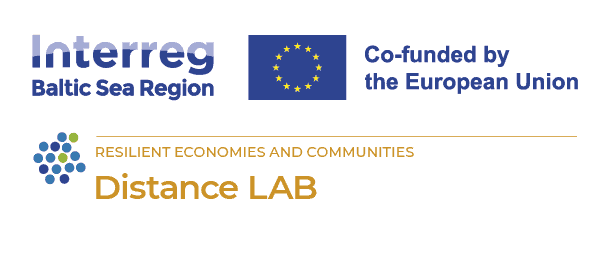
New “Innovation Bridge LAB” Launch Highlights the Human Side of Innovation
06 May 2025
On April 17, during the “Coffee with Tech-Park Kaunas” networking event, Lithuania’s innovation community gathered to mark the launch of the “Innovation Bridge LAB,” a new initiative aimed at strengthening collaboration between academia, business, and society through user-centric research and development.
The Innovation Bridge LAB is a living lab established by Tech-Park Kaunas as part of the Interreg Baltic Sea Region-funded project “Distance LAB.” Its core purpose is to bridge the gap between researchers and the market by integrating customer-centric co-creation methodologies into innovation processes. The lab fosters the development of sustainable, impactful solutions by facilitating structured collaboration among researchers, companies, and end-users. It operates within the broader ecosystem of Tech-Park Kaunas, supporting research commercialization and aligning research outcomes with real-world challenges.
According to Irma Bagdonienė, “Distance LAB” Project Coordinator in Lithuania, the opening of the lab marks a shift in how innovation is developed and implemented across distributed and cross-sector teams.
“Technical expertise alone is no longer enough. In distributed teams, success often depends on empathy, adaptability, and strong communication. The Innovation Bridge LAB is not just about testing tools: it is about transforming research into real-world impact by strengthening collaboration between academia, business, and society,” she emphasized.
The LAB’s focus on real-world team dynamics and soft skills drew strong interest from local startups, many of whom face daily challenges in managing remote or hybrid work environments. The initiative supports teams in building trust, improving virtual collaboration, and fostering a culture of continuous learning capabilities that are increasingly recognized as vital to startup resilience and growth.
The event also featured a keynote from Dr. Valentas Gružauskas, an expert in AI system compliance and a representative of the European AI Office. Addressing the implications of the new EU AI Act, he underscored the importance of ethical responsibility and regulatory alignment in AI development.
“AI is no longer just about performance. It is about transparency, data quality, and ethical responsibility. From risk assessments to continuous system monitoring, the AI Act is reshaping the way we build and deploy AI tools, ensuring they remain safe, trustworthy, and aligned with European values, without stifling innovation,” explained Dr. Gružauskas.
Bringing together regulatory insight and human-centric innovation, the event underscored a clear message: the future of startups lies not only in what they build but in how well their teams communicate, adapt, and grow together.





